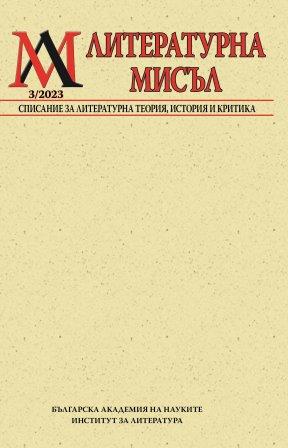Новобългарската проповед от XVII-XVIII век сред православни и католици: реторика на привличане, средства за въздействие
The New Bulgarian Preaching of the 17th – 18th centuries among Orthodox and Catholics: Rhetoric of Attraction, Means of Influence
Author(s): Mariyana Tsibranska-KostovaSubject(s): Language studies, Language and Literature Studies
Published by: Институт за литература - БАН
Keywords: Abagar; Joseph Bradati; new Bulgarian sermon; Bulgarian medieval legacy
Summary/Abstract: The aim of the paper is the analysis of several key themes in selected representatives of the New Bulgarian sermon and the corresponding means of influence as a manifestation of the socio-cultural dynamics between creator and user and of the social needs in which stable attitudes and notions of the Christian religious paradigm are encoded. The specific content and linguistic–textual parameters are considered in direct relation to the historical moment in the following oppositions: Christian norms–real social phenomena; moral norms–their antipodes; cultural-religious tradition–innovation. The sources have been deliberately limited because of the volume of the potentially significant material: 1.The original sermon of the Catholic missionary and Bishop of Nicopolis, Philip Stanislavov, from his Abagar, printed in Rome on the 6th of May, 1651; 2. A selection from the sermons against the superstitious beliefs of Josif Bradati (c. 1714–after 1758). The study proves the existence of a continuity between the "abagar" tradition and the works of Joseph Bradati and his followers. Although the sermon is essentially a struggle against magical healing practices, it is an attempt to create or restore dialogue and religious communication. In other words, it defends the role of Christian institutions, which had been weakened under Ottoman rule.
Journal: Литературна мисъл
- Issue Year: 66/2023
- Issue No: 3
- Page Range: 110-133
- Page Count: 23
- Language: Bulgarian
- Content File-PDF

